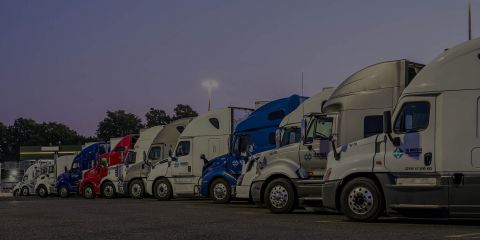
Supply chain resilience has become essential for companies operating in unpredictable markets like Vancouver and Toronto. From port slowdowns and border delays to natural disasters and global disruptions, businesses are recognizing the need to adapt quickly and maintain continuity without sacrificing service levels.
A resilient supply chain can respond, recover, and realign in the face of disruption. Building that resilience is a structured process that includes diversification, visibility, and the right logistics partnerships.
1. Diversify Suppliers, Carriers, and Storage Locations
Relying on a single vendor, transport route, or warehouse location can create bottlenecks when the unexpected happens.
That's why businesses need to diversify their supply base across regions, use multiple transportation carriers, and spread inventory across different locations.
For example, companies in Vancouver benefit from having distribution capabilities in Toronto, and vice versa. This regional flexibility helps maintain flow even if one part of the network slows down.
2. Improve Visibility With Data and Forecasting
Visibility is at the core of every resilient supply chain, as companies need real-time access to inventory levels, shipment statuses, and vendor performance to make informed decisions quickly. This is especially important in cross-border logistics or high-volume retail fulfillment, where delays can ripple across the entire operation.
A modern 3PL partner offers integrated tracking tools and warehouse management systems that help you monitor your supply chain in real time. With better data, you can forecast demand more accurately, prepare for seasonal swings, and quickly reroute when disruptions occur.
3. Build Flexibility Into Operations
Rigid systems break under pressure. Resilient supply chains are built with flexibility in mind, whether that’s the ability to switch to a different warehouse, expedite a shipment, or repackage goods for a new retail channel. This agility depends on having infrastructure and partners that can adapt without requiring a full system overhaul.
Third-party logistics providers (3PLs) play a key role here. With access to scalable warehousing, trucking fleets, and value-added services like pick and pack or kitting, 3PLs allow businesses to adjust quickly without making long-term capital investments.
4. Strengthen Relationships and Communication
In times of crisis, strong relationships matter. Clear communication between your suppliers, carriers, and logistics providers helps everyone stay on the same page. Whether you’re adjusting ETAs or updating order priorities, fast, transparent coordination can prevent small issues from becoming major setbacks.
Using a 3PL also helps centralize communication. Instead of managing multiple vendors across your supply chain, you can coordinate through one logistics partner who manages the moving parts on your behalf.
5. Continuously Test and Refine Your Strategy
Building a resilient supply chain is an ongoing effort. You must regularly stress-test your system by asking what would happen if a port closed, if a key vendor went offline, or if demand spiked unexpectedly. Use those tests to refine processes and build contingency plans that prepare you for the real thing.
Businesses in Vancouver and Toronto have the advantage of access to multi-modal hubs, cross-border infrastructure, and experienced 3PL providers who can help put those plans into action.
Final Thoughts
Resilience isn’t about preventing every disruption, it’s about being ready to respond when it happens. Companies that build supply chains with flexibility, visibility, and strong logistics partnerships will be better positioned to navigate future challenges.
For many, that means working with a 3PL who can provide the infrastructure and expertise needed to stay competitive across Canada and beyond.
Based in Vancouver, British Columbia, Canada, 18 Wheels relies on experience and integrity to make customers happy and remain on the cutting edge of shipping and logistics management.
If you have any questions about this article or you would like to talk to us about your shipping needs, please call us at (604) 439-8938.
